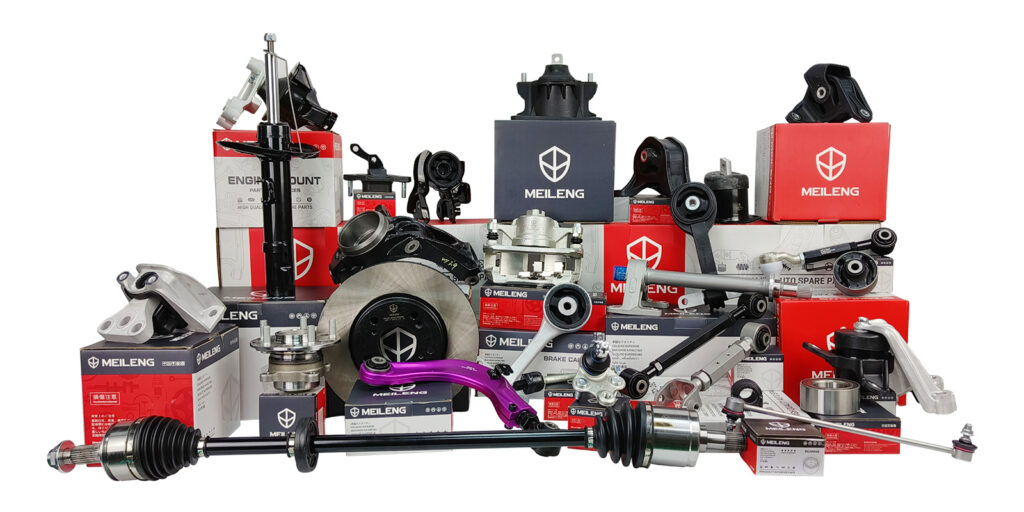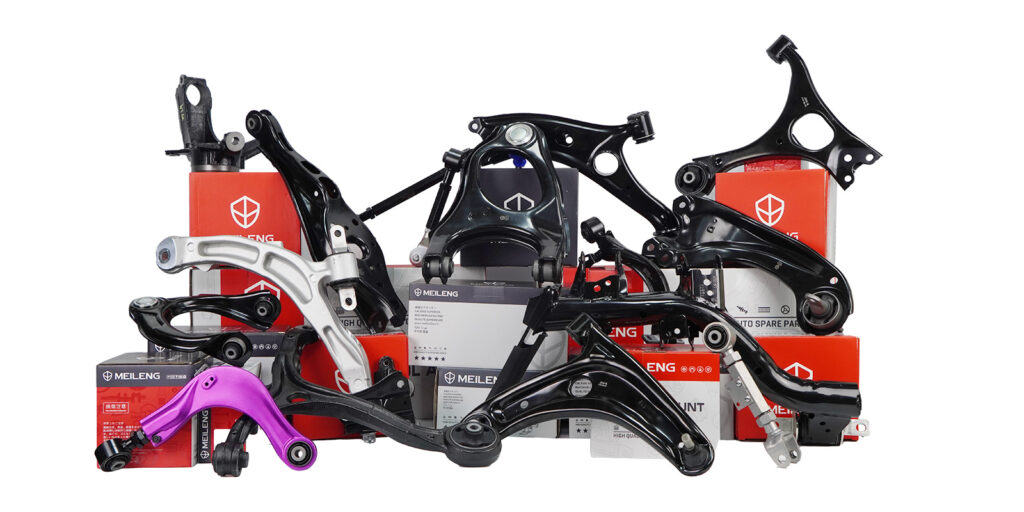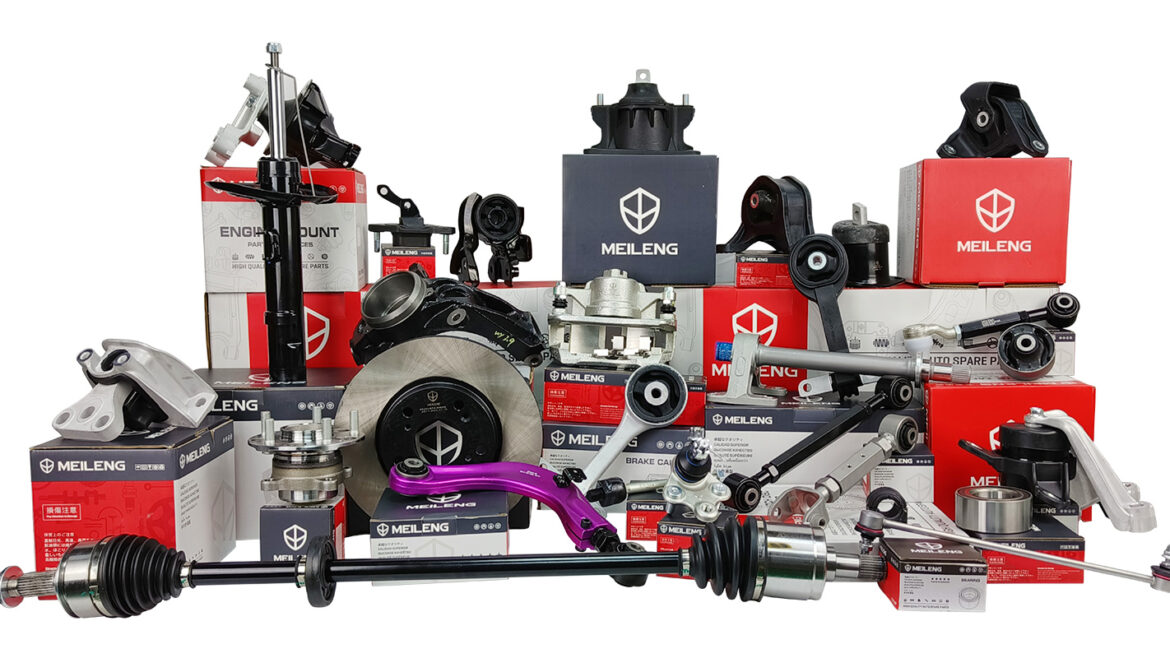How to choose an auto parts supplier?
Factory Direct Sales: Visiting auto parts wholesale markets often reveals that most auto parts stores are directly operated by car manufacturers. These direct sales stores source their products from their own factories.
Non-Direct Sales Stores: There are also non-direct sales stores, although they purchase in smaller quantities. Their supply channels are usually from brand headquarters, but their procurement costs are significantly higher compared to direct sales stores.
Non-Branded Auto Parts Manufacturers: Some auto parts manufacturers are non-branded. While their quality might not match that of branded manufacturers, their prices are more reasonable. Many consumers opt for such products, especially for less critical auto parts like mirrors or car covers, where cost is a major consideration.
Types of Auto Parts Based on Function and Use:
- Engine Parts:
- Pistons and piston rings
- Cylinder heads and gaskets
- Crankshafts and connecting rods
- Camshafts and timing belts/chains
- Oil pumps and water pumps
- Turbochargers
- Transmission System Parts:
- Transmissions and transmission fluid
- Clutches and clutch plates
- Drive shafts and axles
- Differentials and gear oil
- Suspension System Parts:
- Shock absorbers and springs
- Control arms and ball joints
- Stabilizer bars and links
- Wheel hubs and bearings
- Brake System Parts:
- Brake pads and rotors
- Brake calipers and drums
- Brake lines and master cylinders
- ABS sensors and modules
- Electrical System Parts:
- Batteries and cables
- Alternators and starters
- Ignition coils and spark plugs
- Fuses and relays
- Cooling System Parts:
- Radiators and fans
- Water pumps and coolant
- Thermostats and temperature switches
- Coolant reservoirs and hoses
- Fuel System Parts:
- Fuel pumps and filters
- Injectors and fuel rails
- Fuel tanks and lines
- Exhaust System Parts:
- Exhaust manifolds and pipes
- Catalytic converters and mufflers
- Emission sensors and hangers
- Body and Interior Parts:
- Doors and handles
- Lights and mirrors
- Seats and seat belts
- Dashboards and control panels
- HVAC System Parts:
- Compressors and condensers
- Evaporators and blowers
- Heater cores and thermostatic valves
- Cabin air filters and refrigerants
- Wheels and Tires Parts:
- Tires and rims
- Tire pressure sensors
- Lug nuts and bolts
When opening a store, knowing the quantity and timing of inventory is crucial. Understanding supply channels can help avoid both overstocking and shortages.

Main Supply Channels for Auto Parts:
- Manufacturer Channels: Whether it’s a direct or non-direct channel, it’s essential to acquire reliable supply channels. Joining a manufacturer’s channel can significantly simplify the procurement process.
- Non-Manufacturer Channels: For non-branded parts, research and establish relationships with reputable suppliers who offer competitive pricing and reliable quality.
2. Where to Find Honda and Toyota Auto Parts Suppliers
Finding a reliable supplier for Honda and Toyota parts can be challenging. MEILENG, a notable Chinese brand with a global reach, offers high-quality parts and excellent pre- and post-sales service, making it a strong candidate for dealers looking for these brands.
3. Top Auto Parts Suppliers
The auto industry relies heavily on high-quality parts from top suppliers. Here are some of the most renowned:
- Bosch (Germany):
- The largest global supplier of automotive components, producing batteries, filters, spark plugs, brake products, sensors, fuel systems, starters, and generators.
- ZF (Germany):
- Known for their transmissions used by BMW, Audi, Jeep, Land Rover, and Honda. ZF also invests heavily in e-mobility, hybrid transmissions, and autonomous driving technology.
- Continental AG (Germany):
- Known for tires, braking systems, engine injection systems, and automation technologies.
- Magna (Canada):
- A diverse supplier capable of producing a complete car from its components, including advanced driving assistance systems.
- Aisin (Japan):
- Specializes in automatic transmissions and other components widely used in Japanese and European cars.
- Denso (Japan):
- Japan’s largest automotive parts supplier, providing a wide range of components from air conditioning systems to electric control products.
- Hyundai Mobis (South Korea):
- A key supplier for Hyundai and Kia, producing a broad range of automotive components.
- Faurecia (France):
- Specializes in seating systems, emission control technologies, interior and exterior systems.
- Lear (USA):
- A leading supplier of automotive seating and electrical systems.
- Valeo (France):
- Supplies a wide range of systems and components to major automakers like Mercedes, BMW, and Toyota.
4. Choosing a New Auto Parts Supplier

When selecting a new supplier, consider the following:
- Supply Capability: Ensure the supplier can meet your inventory needs.
- Scale and Reputation: Larger, well-known suppliers often offer more reliable service and better terms.
- Brand-Specific Suppliers: For brands like Honda and Toyota, consider suppliers like MEILENG, which offers a large inventory, OEM customization, and competitive warranty terms.
Choosing a supplier with stable quality and good cost-performance can provide a significant advantage in your local market.



Leave a Reply